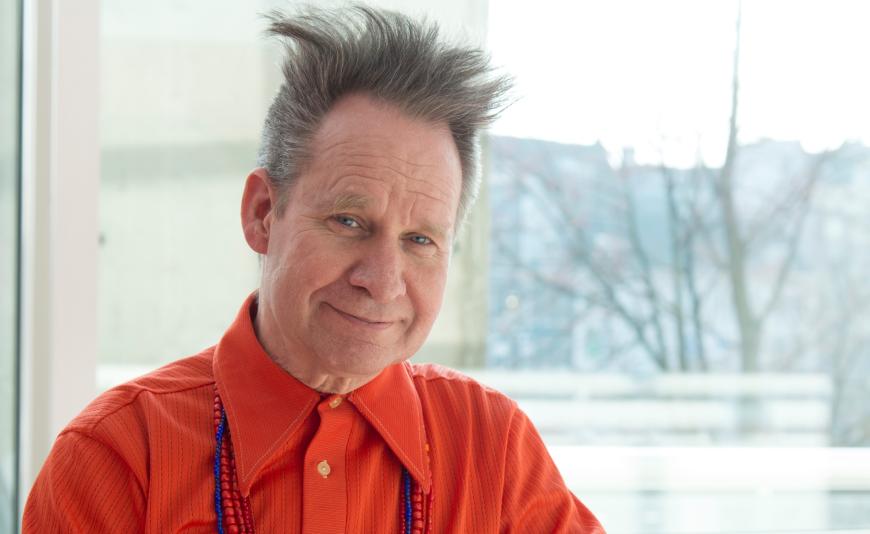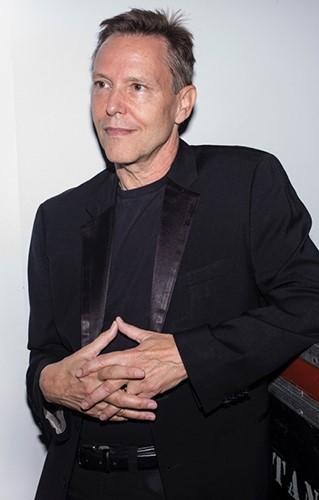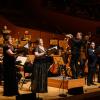
Feeling a little raw these days? Between the pandemic and political instability, things sometimes seem to be falling apart — a deeply unnerving sensation.
Millions of Europeans felt much the same way in the mid-17th century, during the long and destructive Thirty Years’ War. A few fortunate ones found deep solace in the music of Heinrich Schütz.
Generally considered the greatest German composer before Bach, Schütz created large-scale works early in his career, until the war made such performances impossible. Over the years, his compositions shrank in scale and became far more austere, distilled into what Peter Sellars calls “music of profound grief, but also illumination and comfort.”
Southern California audiences will have a chance to experience that communal consolation on Nov. 20, when members of the Los Angeles Master Chorale perform Schütz’s Musikalische Exequien, or Music to Accompany a Departure in Walt Disney Concert Hall. Sellars will direct the production, which will be conducted by Artistic Director Grant Gershon.

“This is unlike any other experience I’ve had with our singers,” Gershon said. “There isn’t a singer who hasn’t experienced some real loss and an unresolved sense of parting. As artists, they are willing to share that vulnerability.”
“It feels like individuals or couples stepping forward and testifying,” added Sellars. “It feels impromptu, like it’s improvised. It doesn’t have the structure of a Mass. It feels more like a group of people sharing what they’ve been going through.”
The project was born during the early weeks of the pandemic, in the spring of 2020. Gershon and Sellars had just brought their highly acclaimed previous collaboration, Orlando di Lasso’s Lagrime di San Pietro, to New Zealand. “We were in the last plane out of the airport before COVID shut everything down,” Sellars recalled.
Back home in L.A., he found himself listening almost continuously to the music of Schütz, which he first heard at Emmanuel Church in Boston when he was in his early 20s. He found himself particularly drawn to Music to Accompany a Departure, with its “incredible centeredness and concentration at a time when the world was a terrifying nightmare.”
He mentioned the work to Gershon during one of their regular phone conversations. Intrigued, the conductor got a score and started to study it. “We talked again at the end of April, and I think it was at that point one or the other of us suggested this may be the next piece to explore with our singers,” Gershon recalled.
Believed to be written for a memorial service for one of Schütz’s friends, the work sets scraps of text from various sources on the topics of earthly mortality and eternal life. “The opening words are ‘Naked I came into the world from my mother’s womb’ — which are, of course, the words of Job, after he has lost everything,” Sellars noted.
“It’s a combination of the whole community singing together — primarily hymn text and passages from the Psalms — with a series of duets, along with a few solos and trios, accompanied in our case by just a small organ and viola da gamba,” added Gershon. “Those pieces in particular seemed to be about saying goodbye.”
With the number of singers not specified in the score, Gershon decided on 24, about half of whom also performed in Lagrime di San Pietro.
“We’re doing a lot of experimentation with different tempos and different dynamics,” he said. “There are no tempo markings and virtually no dynamic markings in the score. So we spend a lot of time exploring what the music is saying to us — and that becomes the departure point for the staging. There’s a lot of gesture that corresponds clearly to specific words in the text, in such a way that you see the counterpoint as well as hear it.”
The costumes will reflect the sorts of clothing people would wear to a modern-day memorial service, adds Gershon. That’s because this staging — which the Chorale is planning to tour to other cities — is partly intended to fulfill a specific need: mourning the people who died in the pandemic and preparing ourselves for the next phase of the disease, whatever that may be.
“When it comes to COVID, nobody knows what’s going to happen next,” Sellars said. “This piece is in that spirit. We’re here now, on the edge of we don’t know what. This is music of people who are searching, trying to understand.
“It ultimately offers deep comfort — just by acknowledging what we’re feeling. The last movement is a little taste of the antiphonal choral work that Schütz knew in his youth when he studied with [Giovanni] Gabrieli. The singers are in some other realm. We hear other voices. We hear that we are not alone.”
The Los Angeles Master Chorale performs Music to Accompany a Departure at 7 p.m. on Sunday, Nov. 20 at Walt Disney Concert Hall. Tickets are $45 to $153. For more information, call (213) 972-7282, or visit the Chorale’s website.




